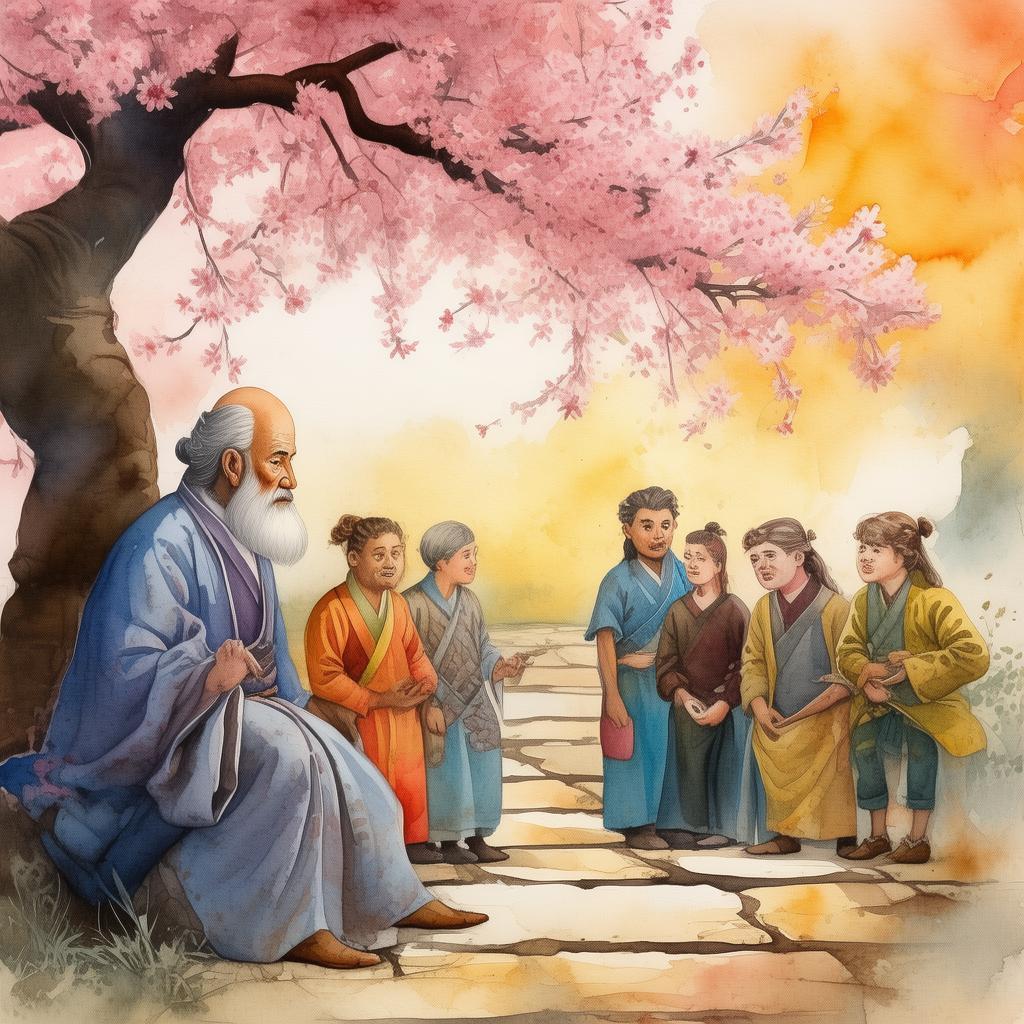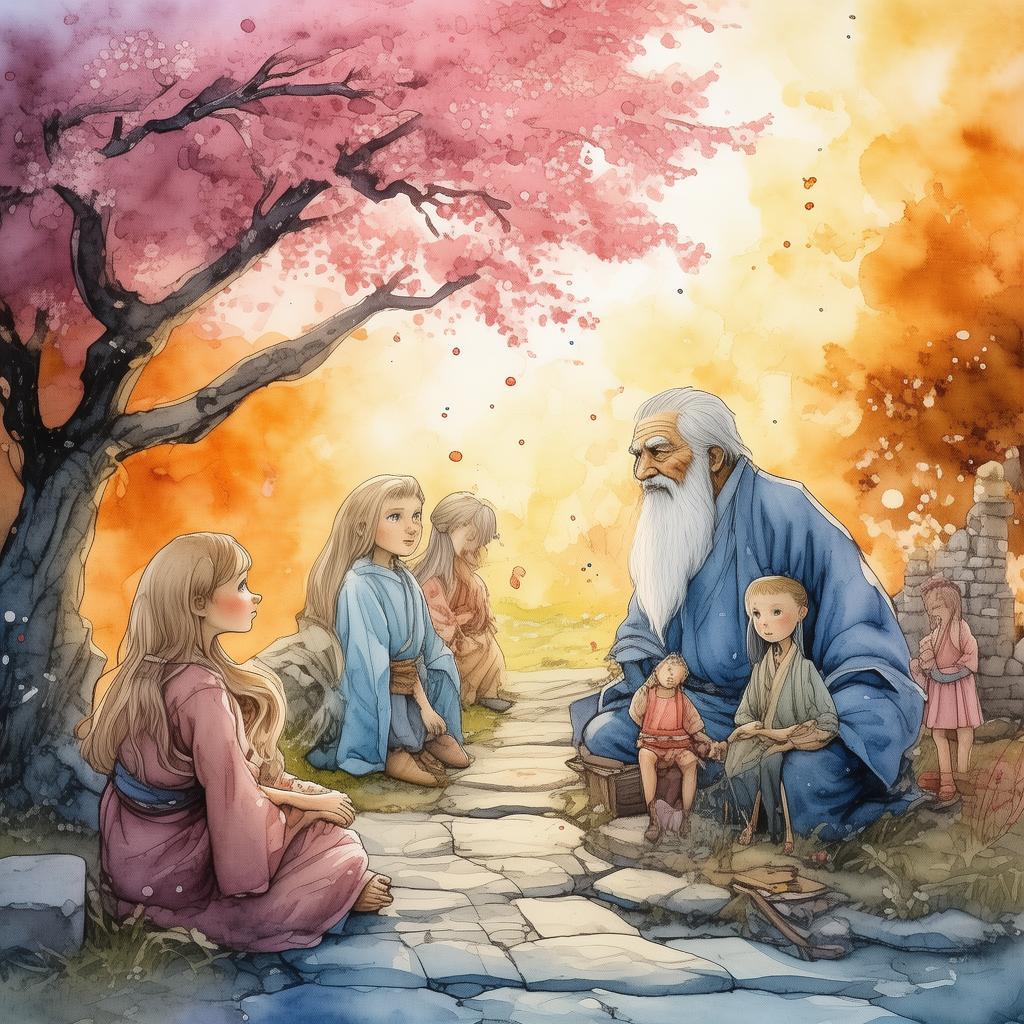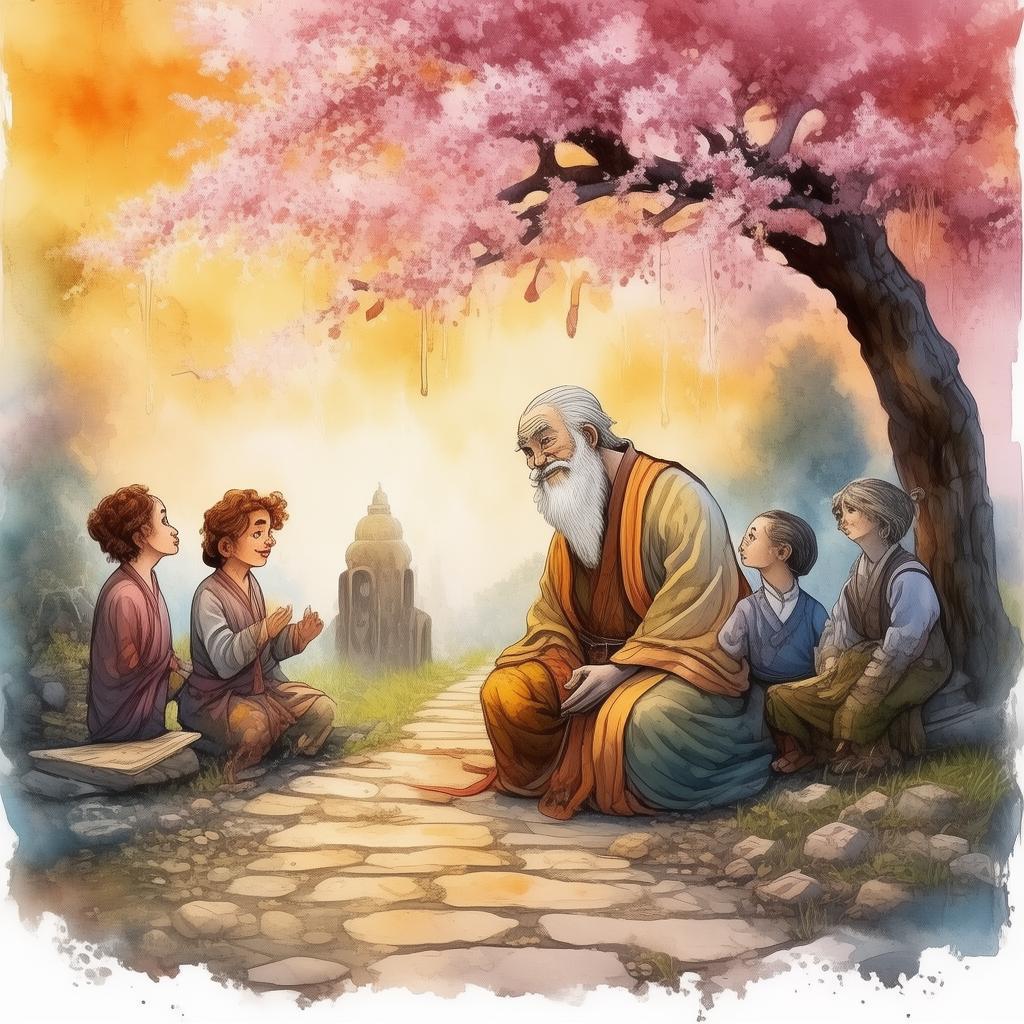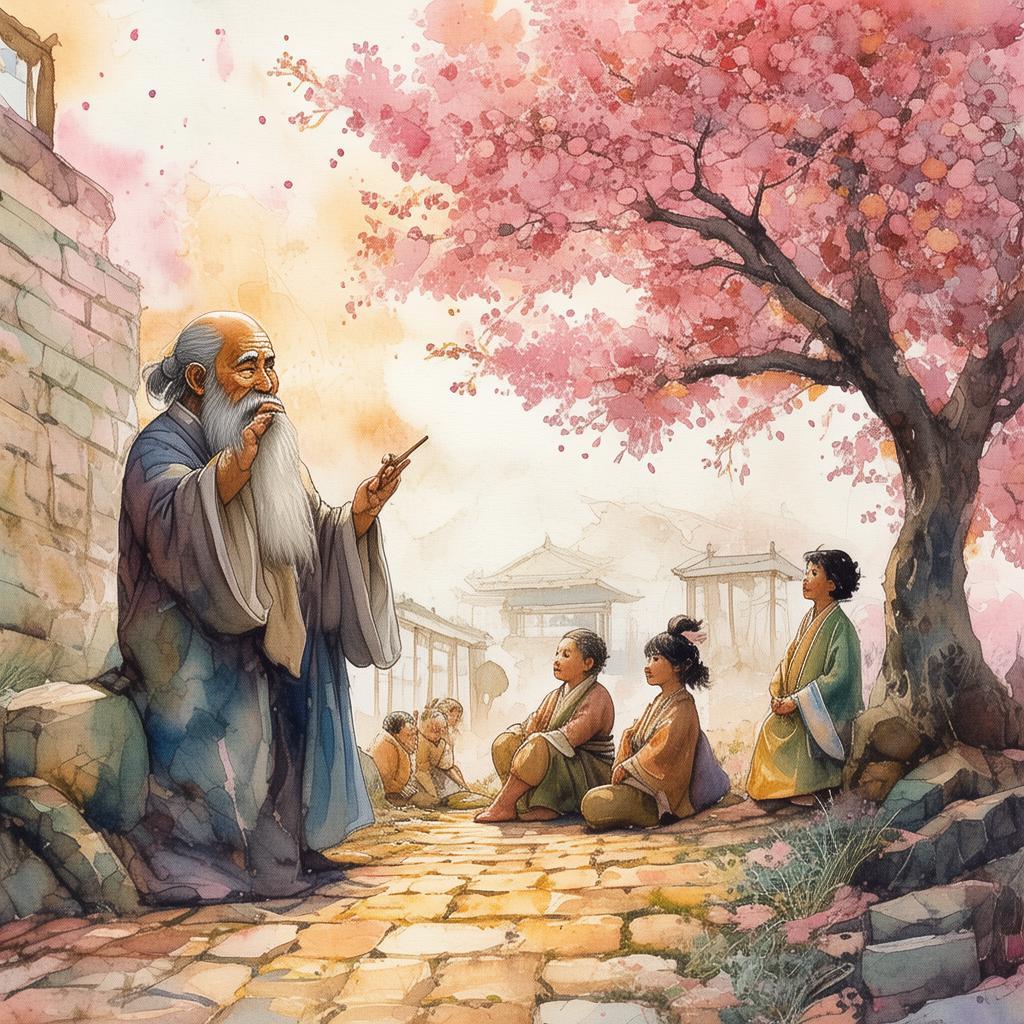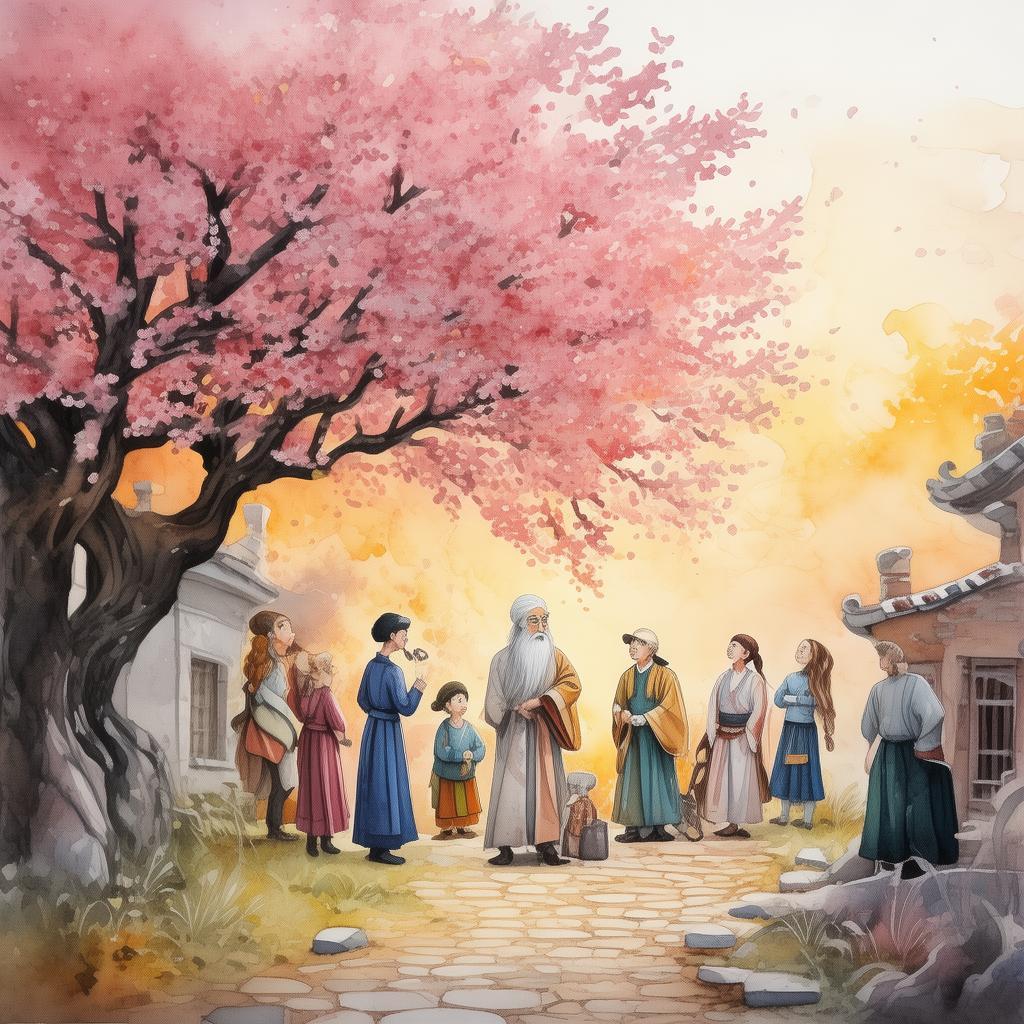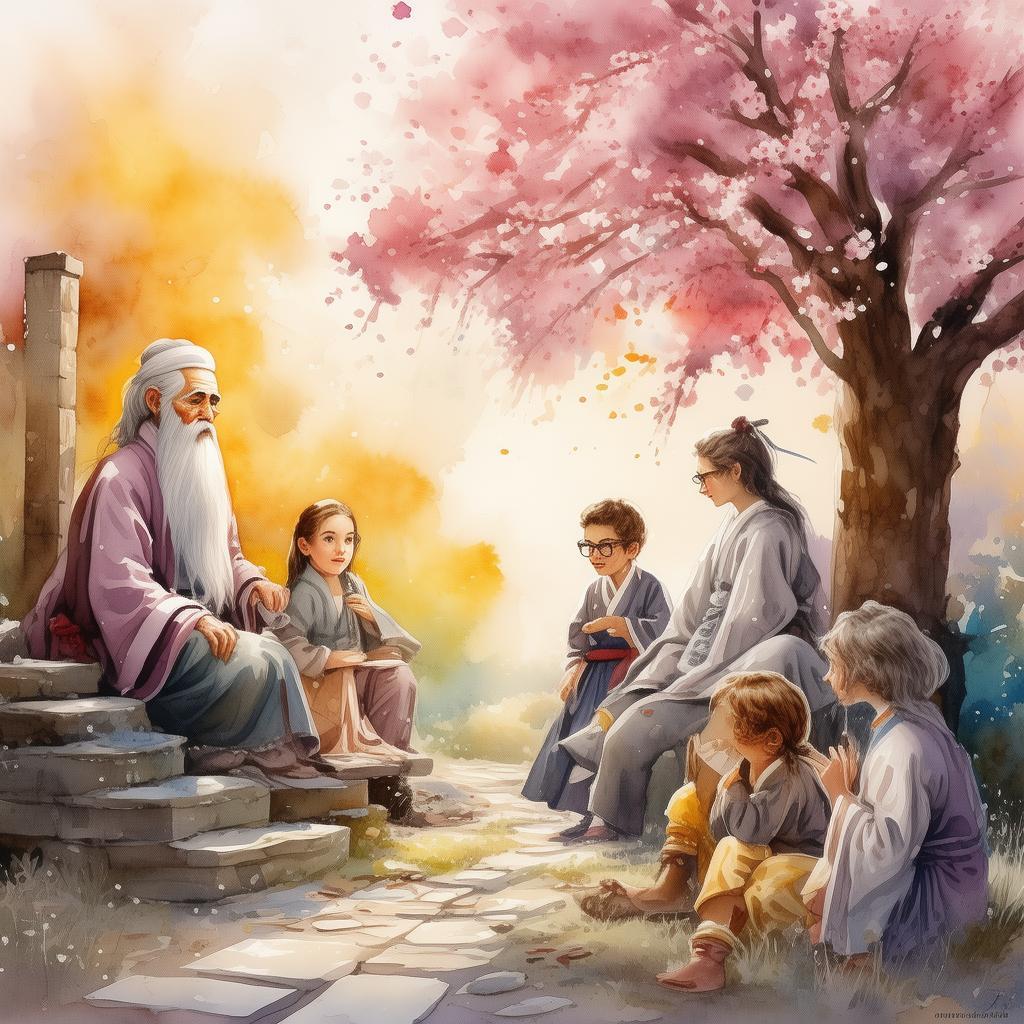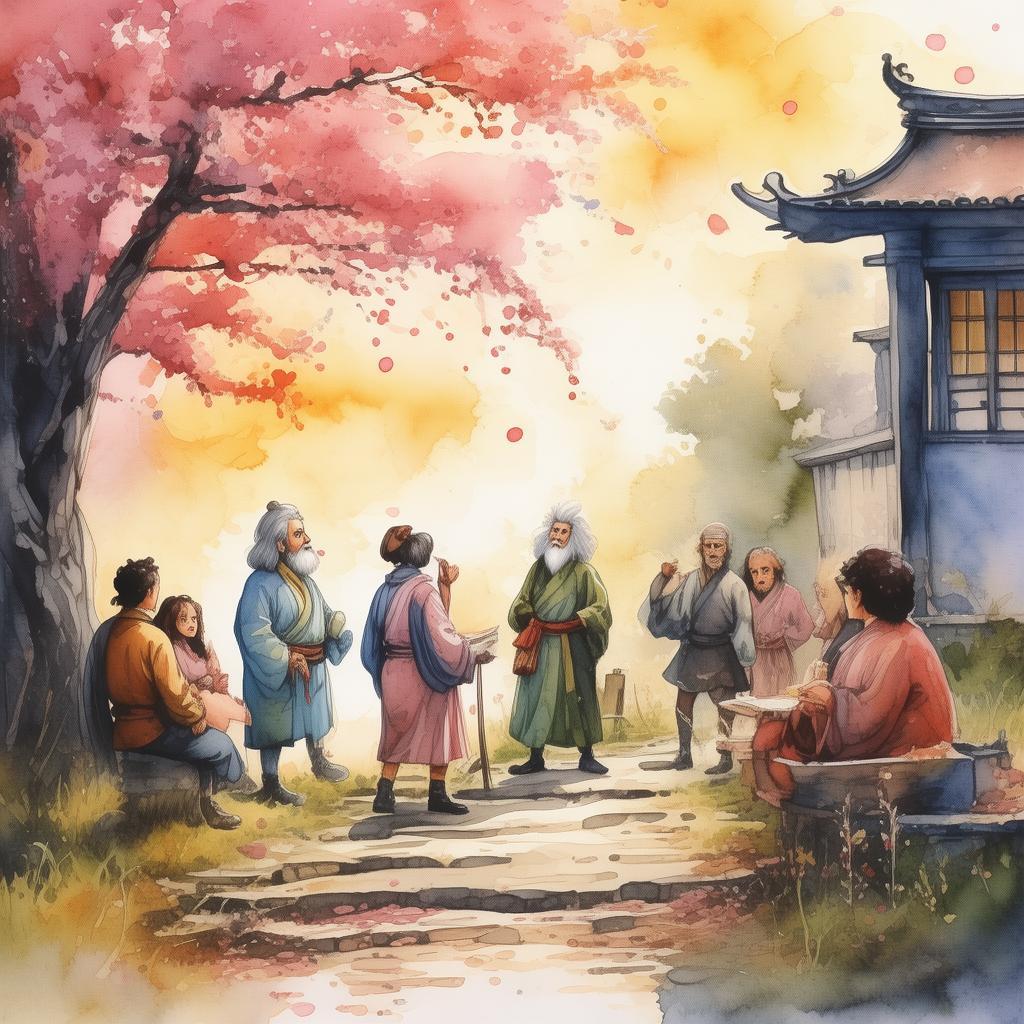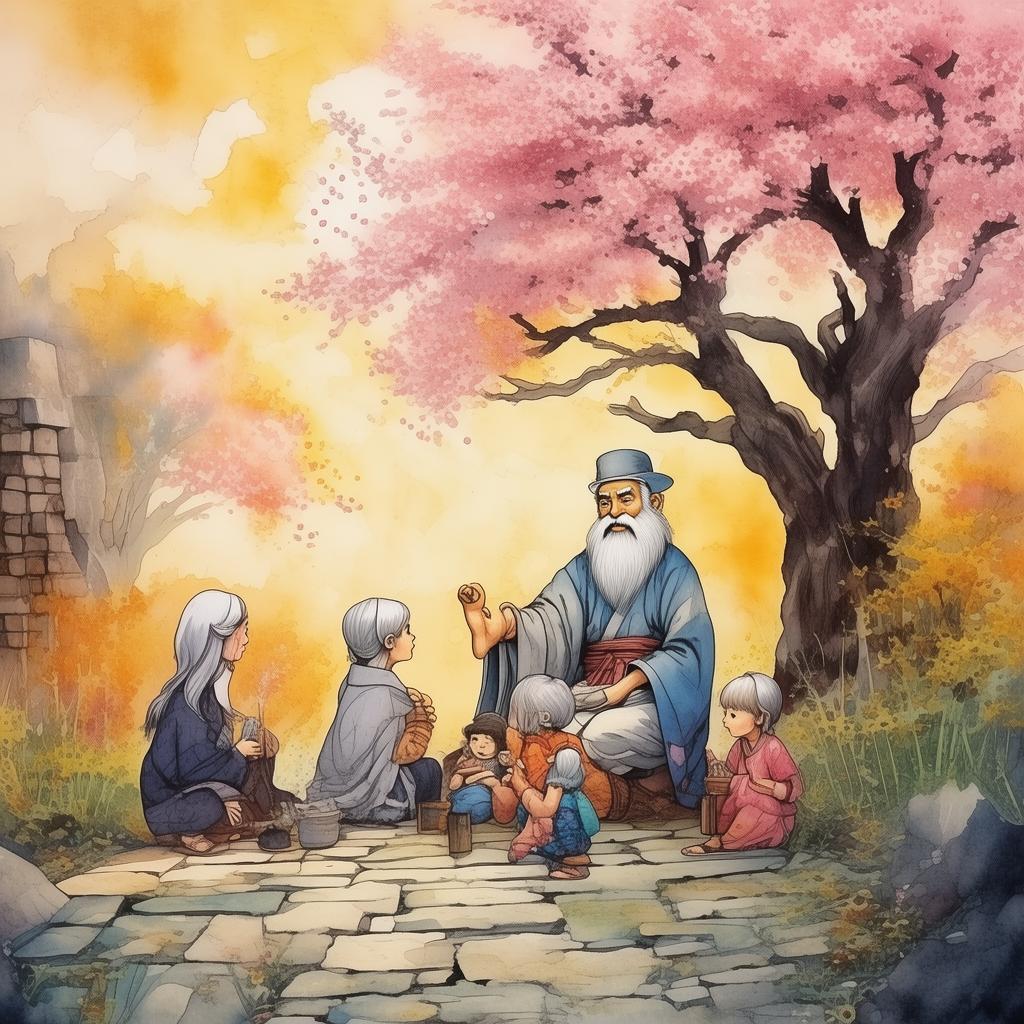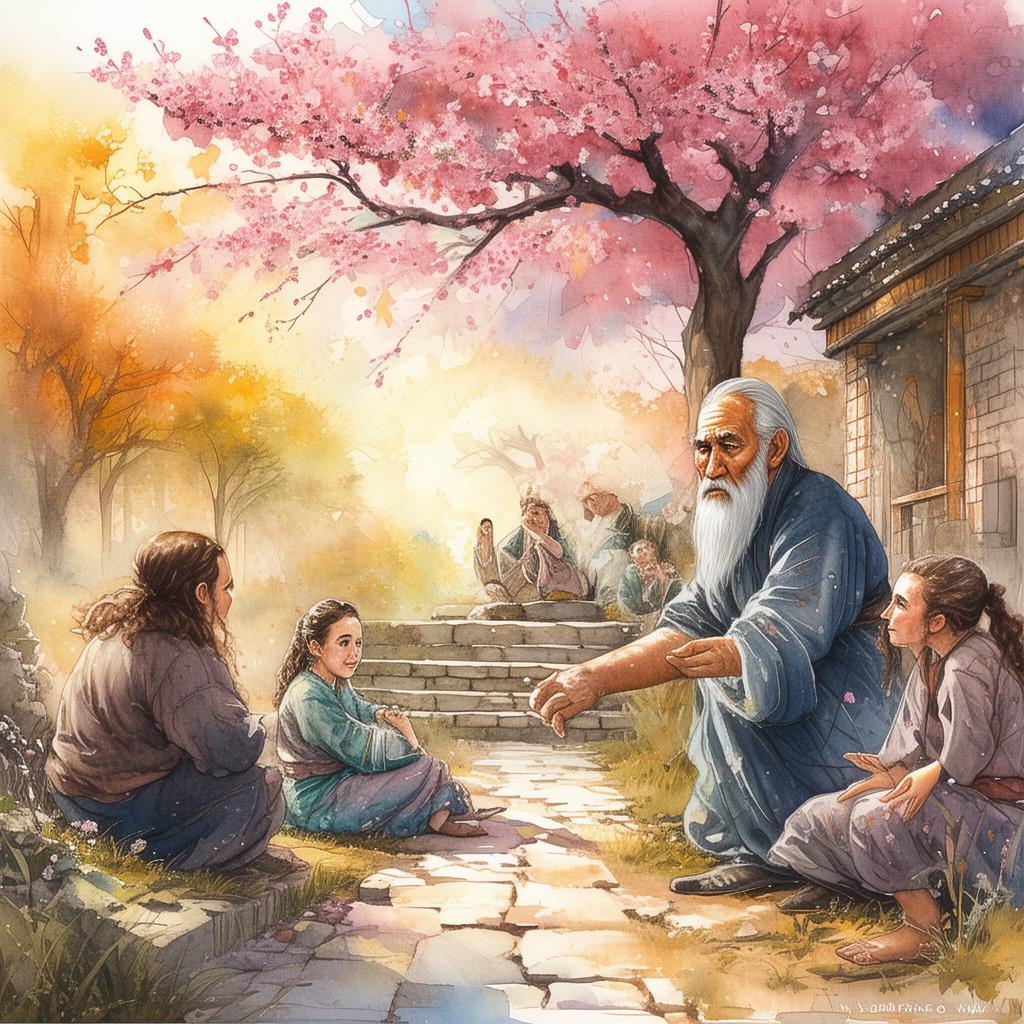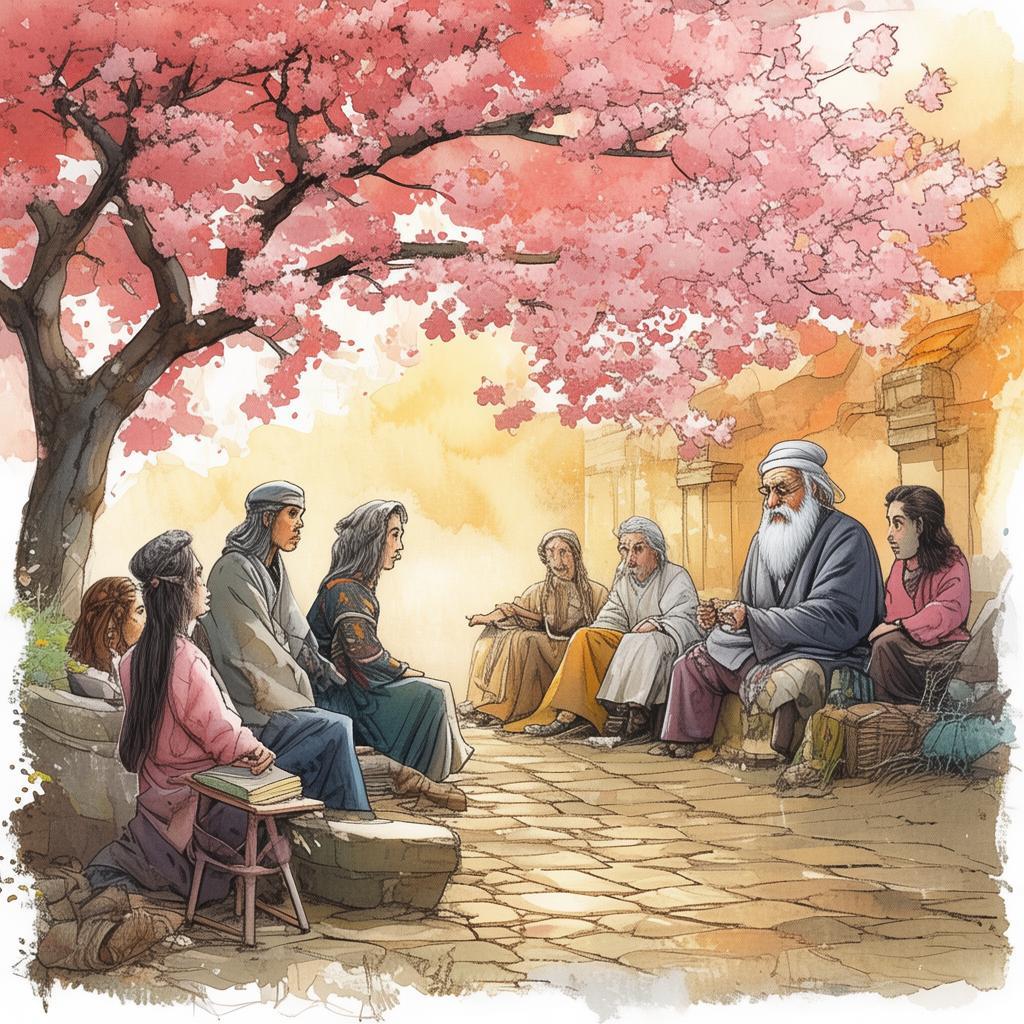Twilight's Harmony: The Symphony of Light and Shadow
In the heart of ancient China, where the whispers of the gods mingled with the hum of the bustling markets, there lived a young musician named Ling. His name was synonymous with the guqin, the ancient Chinese zither that resonated with the soul, telling tales of light and shadow, of joy and sorrow. It was said that the guqin could sing the symphony of the cosmos, a melody that only the pure of heart could hear.
Ling was no ordinary musician. His fingers danced across the strings with a grace that was almost ethereal, and his music had the power to move mountains and calm the storm. Yet, he felt an emptiness within him, a void that only the guqin could fill. He sought the guqin's secret, the one that would unlock the full potential of its melody, the one that would complete the symphony of his life.
According to an ancient scroll, the guqin's true power lay in the balance of light and shadow, a concept known as "Yin and Yang." It was said that to master the guqin, one must understand the dance of these two forces, for they were the essence of the universe. The scroll spoke of a "Ten Days of Light" and a "Dance of Shadows," a period when the balance of light and shadow was most pronounced, and the guqin's voice could be heard across the land.
Ling set out on a journey to find the "Ten Days of Light," a mystical time when the sun shone brightest and the shadows danced in harmony. He traveled through deserts and mountains, through forests and rivers, his heart filled with the hope of mastering the guqin.
One day, as he wandered through a dense forest, he stumbled upon an ancient temple hidden among the trees. The temple was shrouded in mist, and the air was thick with the scent of incense. Inside, he found an old monk who, upon hearing his name, smiled warmly.
"The guqin's secret is not in the strings or the wood," the monk said, his voice like a gentle breeze. "It is in the balance of light and shadow within your soul."
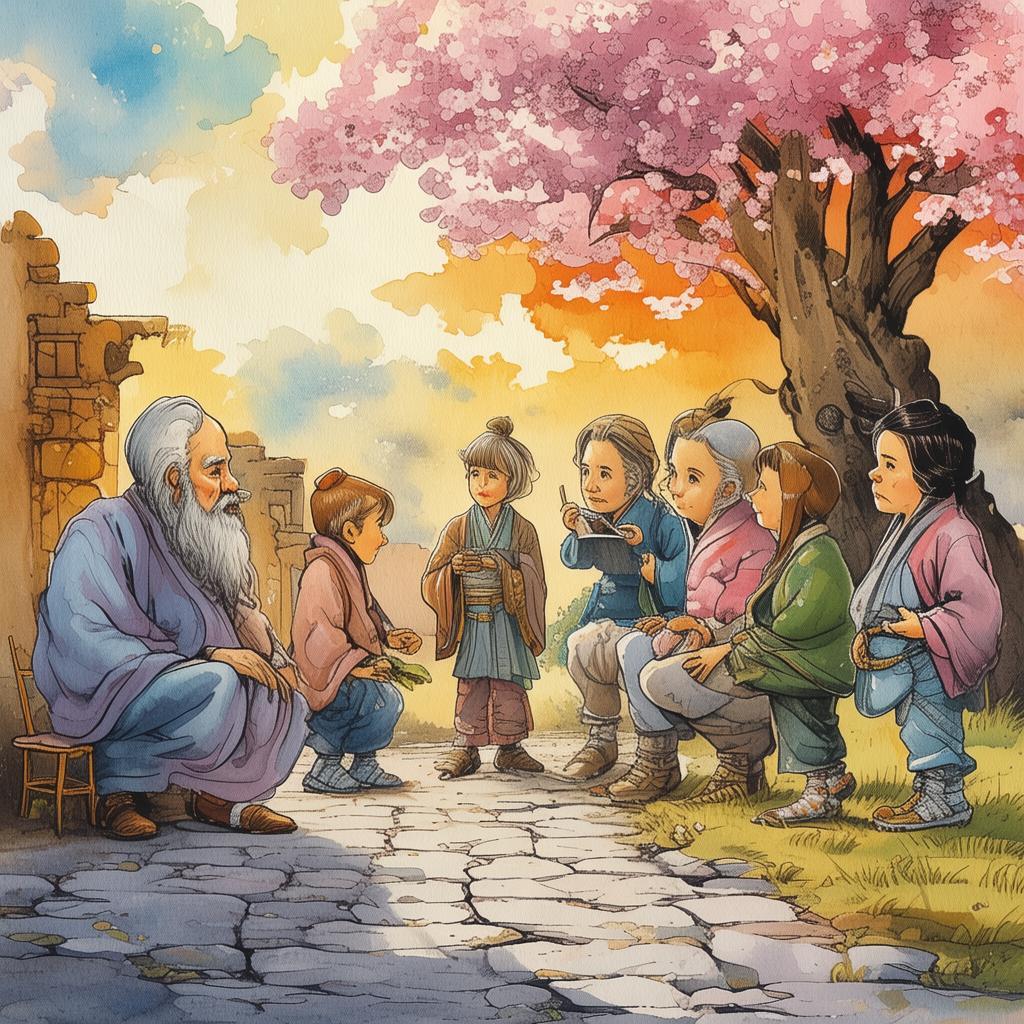
Ling was puzzled. "But how do I find that balance?"
The monk gestured to the guqin in the corner of the room. "Play the guqin for me, and you will find the answer."
Ling sat down and began to play. The music was beautiful, but it lacked something. The monk watched him intently. "You play with the light, but you forget the shadow. The guqin is a mirror to your soul. It reflects both light and shadow."
Ling paused, his fingers stilling on the strings. He realized that his music was too bright, too cheerful, too one-dimensional. He needed to embrace the shadow, to understand its place in the symphony of life.
The monk nodded. "Go to the 'Dance of Shadows,' and you will learn the balance you seek."
Ling left the temple and continued his journey. He traveled to a desolate place where the sun set early and the moon rose late. Here, the shadows were long and the air was cool. He sat down under a tree and began to play the guqin again.
This time, the music was different. It was still beautiful, but it had depth, a complexity that reflected the balance of light and shadow. The music seemed to fill the void within him, and he felt a sense of peace he had never known before.
The "Ten Days of Light" came and went, and Ling returned to the temple. The monk listened to his music and smiled. "You have found the balance," he said. "Now, you can play the guqin's true symphony."
Ling played, and the music was like a storm, a tempest of light and shadow that filled the temple. The monk closed his eyes and listened, a tear of joy glistening in his eye.
From that day on, Ling's music was a reflection of the balance of light and shadow, a testament to the harmony that can be found in the dance of these two forces. His name became synonymous with the guqin, and his music was said to be the voice of the cosmos, a symphony that resonated with the essence of life itself.
And so, the story of Ling and the guqin became a legend, a tale of the balance of light and shadow, of the harmony that can be found in the dance of these two forces. It was a story that taught that the true power of the guqin, and of life, lay not in the instrument itself, but in the balance of one's own soul.
✨ Original Statement ✨
All articles published on this website (including but not limited to text, images, videos, and other content) are original or authorized for reposting and are protected by relevant laws. Without the explicit written permission of this website, no individual or organization may copy, modify, repost, or use the content for commercial purposes.
If you need to quote or cooperate, please contact this site for authorization. We reserve the right to pursue legal responsibility for any unauthorized use.
Hereby declared.
